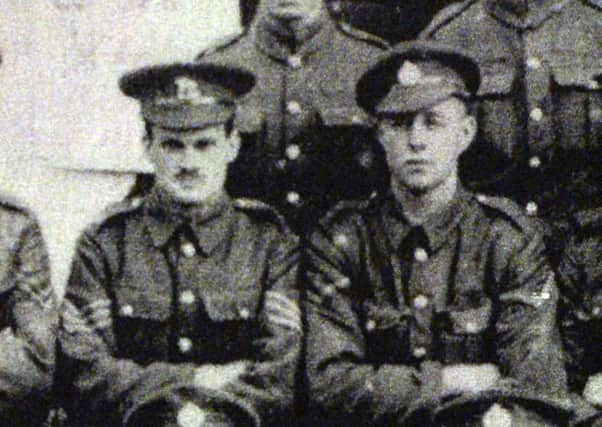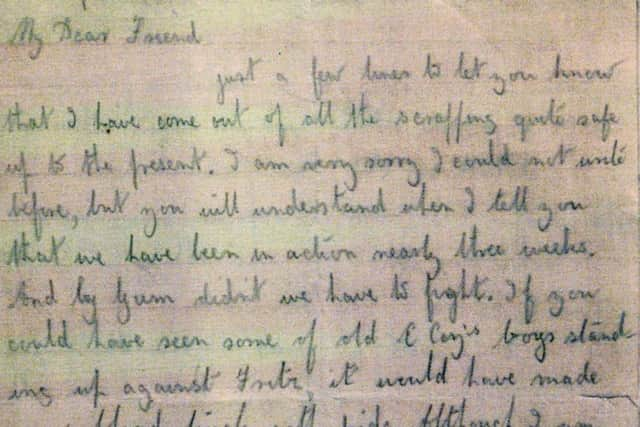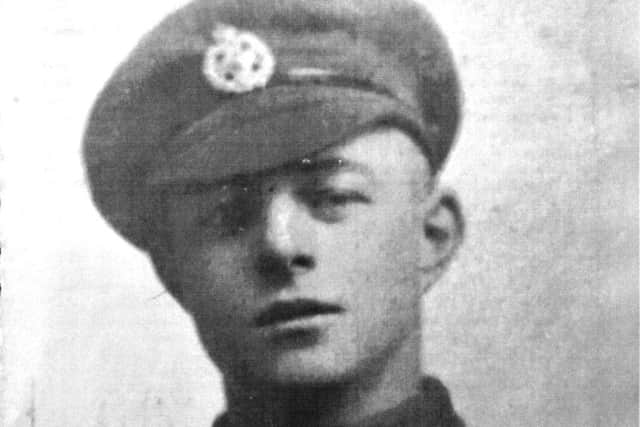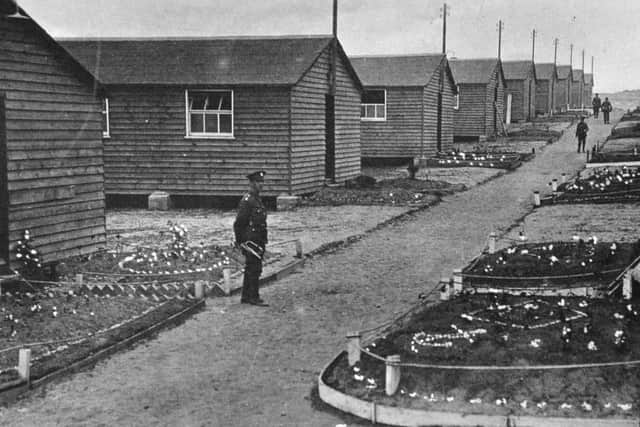Unique First World War letters from local soldier found in an old brown suitcase


He had just finished three weeks of fierce fighting in France in April 1918, and was writing from the trenches to a friend in England.
“We have been in action for nearly three weeks, and by gum didn’t we have to fight” he wrote. “If you could have seen some of the old “E” company standing up against Fritz it would have made your blood tingle with pride.


Advertisement
Hide AdAdvertisement
Hide Ad“Although I am very sorry to say most of them have made the ‘great sacrifice’...
“We have only got one officer, no company sergeant major and no sergeants. So you can guess what a state the company was like.”
This is just one of a series of remarkable front line letters written by Desborough soldier Arthur to his friend, mentor and army instructor Henry Orpen.
Found in a battered brown suitcase, they were lent to the Mail by Arthur’s grandson Lee Cobley, who lives in Market Harborough.


Advertisement
Hide AdAdvertisement
Hide AdArthur Clarke (nickname Nobby) had left his Desborough factory to join up in Market Harborough in 1915, lying about his age. He was found out and sent home. He joined up again (legally this time) when he was 18.
After training at Clipstone Camp near Mansfield, he was sent to France, early in 1918 and joined the 3rd Battalion Rifle Brigade, as a signaller, providing telephone or morse code communications, often from the front line, back to company and battalion HQ.
It was a dangerous job, but Arthur had daring, optimism, and a lucky watch – a present from his Clipstone Camp instructor Henry.
On January 14 he wrote to Henry: “We arrived here quite safely after a pretty rough crossing, and we are just getting used to active service. I am sorry to say that all the boys are going up the line except the signallers...”


Advertisement
Hide AdAdvertisement
Hide AdBut by March 1 he was on the front line himself. He wrote: “I am already sick of the bully (a fatty corn beef)and biscuits”.
On March 15: “The shells put the wind up me for the first time up the line. But I am used to them now. The worst of the shells are the ‘whizz bangs’ (from German field guns) and the ‘minnies’ (a type of trench mortar).”
Arthur’s April letter, during a German Spring Offensive, mentions four friends who have been killed. “The last I saw of poor old Brockwell was when he was surrounded but still fighting”.
Then on July 29, news that he’d been seriously wounded: “I was just going down this bit of track when ‘whiz crump’ and a few minutes later old Nobby was on his way down again.
Advertisement
Hide AdAdvertisement
Hide Ad“And now my dear old pal I have a confession to make. I lost my watch, the one you made me a present of. I valued your gift more than my life, and would gladly give it, if I could get it back.”
Arthur was in hospital for months, eventually transferred to East Sussex Hospital, Hastings. Complications set in, including an abscess, scarlet fever and pneumonia. He almost died.
In July 1919, nine months after the war had ended, Arthur wrote from a Leicester hospital: “My old employer (a Desborough shoe factory) said how sorry he was to hear I had been disabled and he said he would try and find some light work for me when I get back. But to be frank I don’t want to go back there.”
Nevertheless, Arthur Clarke, after 18 months of hell, quietly returned to the boot and shoe trade in Desborough.